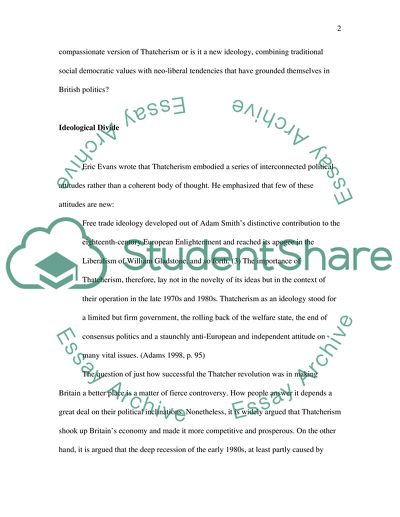Cite this document
(Thatcherism vs. New Labour Case Study Example | Topics and Well Written Essays - 2158 words, n.d.)
Thatcherism vs. New Labour Case Study Example | Topics and Well Written Essays - 2158 words. Retrieved from https://studentshare.org/politics/1546270-how-if-at-all-are-thatcherism-and-new-labour-interrelated
Thatcherism vs. New Labour Case Study Example | Topics and Well Written Essays - 2158 words. Retrieved from https://studentshare.org/politics/1546270-how-if-at-all-are-thatcherism-and-new-labour-interrelated
(Thatcherism Vs. New Labour Case Study Example | Topics and Well Written Essays - 2158 Words)
Thatcherism Vs. New Labour Case Study Example | Topics and Well Written Essays - 2158 Words. https://studentshare.org/politics/1546270-how-if-at-all-are-thatcherism-and-new-labour-interrelated.
Thatcherism Vs. New Labour Case Study Example | Topics and Well Written Essays - 2158 Words. https://studentshare.org/politics/1546270-how-if-at-all-are-thatcherism-and-new-labour-interrelated.
“Thatcherism Vs. New Labour Case Study Example | Topics and Well Written Essays - 2158 Words”, n.d. https://studentshare.org/politics/1546270-how-if-at-all-are-thatcherism-and-new-labour-interrelated.


